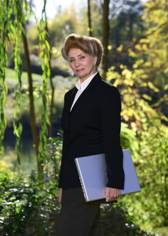Fresh Water Recycling System Would Not Require Outside Water Reports International Water Journalist
Press release
Fresh Water Recycling System Would Not Require Outside Water Reports International Water Journalist
Bio-Logic Aqua Research's Sharon Kleyne Interviews Fred Pearce on Total Water Management and the Global Fresh Water Crisis
Hear the Sharon Kleyne Hour Power of Water on World Talk Radio, Voice America, Green Talk Network and Apple iTunesp
The world is experiencing a fresh water crisis. California may not be the hardest hit - places like Somalia are far more impacted. But California is in the midst of an extended, historic drought that seriously threatens agriculture, industry and household drinking water. A closed fresh water system that recycles 100 percent of human waster water would be immensely beneficial for both California and Somalia. Fresh water advocates Fred Pearce and Sharon Kleyne believe such a system is currently possible.

Pearce and Kleyne believe that this "Total Water Management" (TWM) concept, if fully implemented worldwide, could reduce global conflict, improve water security and benefit many factors responsible for climate change.
Fred Pearce, a London based international journalist, specializes in water resources and conflicts. Pearce has been writing about water for 30 years. His most recent book is "When the Rivers Run Dry" (Beacon Press, 2006). Pearce was interviewed on Kleyne's October 6, 2014 radio broadcast.*
Sharon Kleyne hosts the syndicated Sharon Kleyne Hour Power of Water radio show, heard on VoiceAmerica and Apple iTunes. The show is sponsored by Bio-Logic Aqua Research, a global research and technology center specializing in fresh water, the atmosphere and dehydration. Nature's Tears® EyeMist® is the Research Center's signature product for dry eyes. Kleyne is Bio-Logic Aqua's Founder and Research Director.
The TWM system proposed by Kleyne and Pearce was based on the work of Neil Grigg, PhD, at Colorado State University. Grigg was interviewed on the Sharon Kleyne Hour Power of Water broadcast of September 15, 2014.*
* For the full Fred Pearce and Neil Grigg interviews, see the Sharon Kleyne Hour archives:: http://www.voiceamerica.com/show/2207/the-sharon-kleyne-hour
In TWM, after water company customers finish using the fresh water delivered to them, 100% of the resulting waste water is recaptured and reprocessed. The water is purified, and waste and contaminants are removed to where the water can be safely returned to the system - or to the environment. Sludge removed from the water is either reused or safely returned to the environment. Most water treatment facilities lack the technology for this level of processing.
Treated waste water is returned to a reservoir, run back through the intake facility and resold as drinking, agricultural or industrial water. Since the same water is used over and over, this would be a closed system requiring little or no outside water. The endless search for new water would be virtually eliminated.
The best part, says Kleyne, is that more of the rainwater falling on Earth's terrestrial surface would be allowed to feed lakes and streams and recharge aquifers. The system could eliminate the need for ground water mining, a finite resource that took millions of years to form and is being rapidly depleted.
With more water remaining on the ground, more water would evaporate into the atmosphere, resulting in more rain and improving soil health. One danger of extended drought and dry soil is that the soil microorganisms eventually die. Soil that is dead, dehydrated and nonproductive is called "sand."
Since global climate change is directly affected by the hydrologic cycle - the word "climate" refers to patterns of weather and precipitation - a widely implemented TWM system could help reverse some of the human caused factors driving climate change.
To demonstrate the feasibility of this plan, Kleyne cites the tiny island nation of Singapore, with its limited land area and five million citizens. Singapore has become the fresh water management model for the world. One of Singapore's goals is to recapture and reuse all water discarded by customers. They also attempt to capture 100% of the rainwater.
Singapore is able to recycle waste water so that it is 100% safe to drink.
Kleyne and Pearce believe that human civilization has the ability and technology to solve the fresh water crisis. To achieve this, according to Kleyne; safe, sufficient and reliable access to fresh water by everyone must become the number one priority of every government. Fresh water security say Kleyne and Pearce, whether in California or a rural village in Kenya, must emphasize recycling and sustainability. The ultimate sustainable recycling model would be a closed TWM system with 100% reuse.
Health + Diet
Environment
|
|
 Sharon Kleyne
Sharon Kleyne